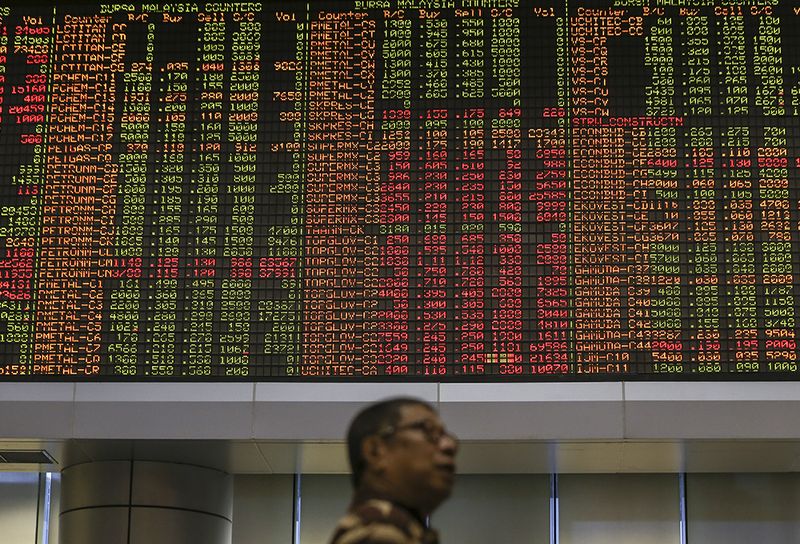KUALA LUMPUR, Feb 17 ― A high net foreign fund outflow of RM263.5 million was recorded between Monday to Thursday, a level last seen since the third week of December 2018, as investors recalibrated their investments due to periodic adjustment within the region this week.
Inter-Pacific Securities Sdn Bhd research head Pong Teng Siew said the scenario was expected to continue in the coming weeks until the periodic adjustment is concluded.
“The outflow of funds were recorded in the Philippines and Malaysia while higher inflow was recorded in Singapore, Thailand and Indonesia,” he told Bernama.
Compared with the holiday-shortened days of last week, due to the Chinese New Year celebration, RM138.6 million flowed in between Monday and Thursday compared with only RM6.6 million this week.
He also said the performance of the local equity market and the ringgit was influenced by the economic stability in the United States (US) and China.
“Our ringgit is currently pegged to the Chinese yuan. What affects the yuan will also affect the ringgit,” he said.
Meanwhile, M&A Securities Sdn Bhd chief dealing officer R. Sundararajah said although trade negotiations between the US and China ended on Friday, there has been no official statement on the outcome of the meeting.
“There will be another meeting between President Xi Jinping and US President Donald Trump and their senior officials at a later date.
“Hence, if there is an impasse on the negotiations and markets will likely react negatively next week,” said Sundararajah.
He said, in order to reverse the outflow and strengthen the inflow of funds, internal economic and political factors assumed an important role in convincing investors.
“We need long-term and sustainable inflow and as of late, government-linked investment companies (GLICs) have not been very active in the market.
“We also need to see details coming out from Khazanah Nasional Bhd, the government’s sovereign wealth fund on the disposal of its non-core assets,” he said.
On Friday, the FBM KLCI closed marginally lower by 0.01 per cent or 0.23 points to 1,688.83.
As for the ringgit’s outlook, Kenanga Investment Bank Bhd said the weak US dollar would support the ringgit to stay below 4.10 against the US dollar in the near term.
"However we maintain our US dollar-ringgit year-end forecast of 4.10 due to slower domestic economy and the tendency for global capital to flee to safe haven assets," said the research bank in a note.
Besides,, it also said in spite of the decision by US Federal Reserve to pause interest rate hikes, the report maintained that Bank Negara Malaysia (BNM) would continue to hold the overnight policy rate (OPR).
“Given that there is no sharp deterioration in domestic and external demand, due to a weaker global growth outlook for this year, BNM is expected to retain its OPR at 3.25 per cent in 2019,” it said.
As for international reserves, the BNM said it amounted to US$102.1 billion (RM417 billion) as at January 31, 2019, higher than the US$101.7 billion recorded as at January 15, 2019.
The reserves position is sufficient to finance 7.4 months of retained imports and is 1.0 time the short-term external debt.
During the week, the BNM also announced that Malaysia gross domestic product (GDP) expanded 4.7 per cent in 2018.
It also valued the country’s GDP at RM1.23 trillion, at constant prices, and RM1.43 trillion at current prices.
Finance Minister Lim Guan Eng also indicated that Malaysia’s first 200 billion yen 10-year Samurai bond, guaranteed by the Japanese government, would be issued next month.
Last week, the government also announced the establishment of the Economic Action Council (EAC) to assist the government in finding the best solution to solve the country’s economic challenges.
The EAC would be chaired by the Prime Minister Tun Dr Mahathir Mohamad and consist of ministers and prominent business leaders.
Other announcements during the week, included the appointment of the Securities Commission chairman Datuk Syed Zaid Albar as the vice-chair of the International Organisation of Securities Commissions (IOSCO) Growth and Emerging Markets Committee.
IOSCO is the leading global standard setter for securities regulation.
It regulates more than 95 per cent of the world’s securities markets in more than 115 jurisdictions. ― Bernama






















